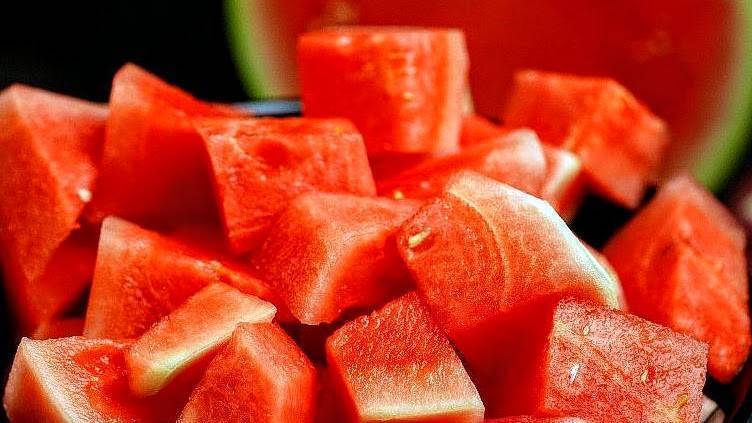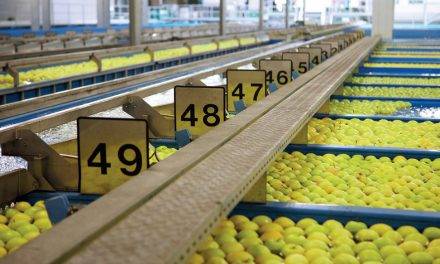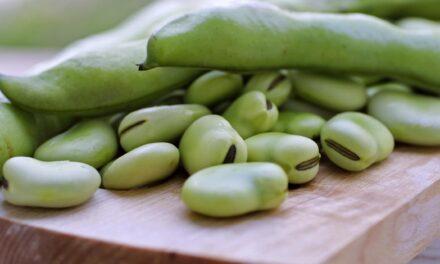By Jessie Szalay, Live Science Contributor (1/3)
Jessie Szalay, Live Science Contributor, publishes an interesting article about watermelon, explaining the health benefits, risk & nutritional facts. This notice belongs to the first part of her article, Health Benefits. To see the complete article, click HERE.
Watermelons are mostly water — about 92 percent — but this refreshing fruit, is soaked with nutrients. Each juicy bite has significant levels of vitamins A, B6 and C, lots of lycopene, antioxidants and amino acids. There’s even a modest amount of potassium. Plus, this quintessential summer snack is fat-free, very low in sodium and has only 40 calories per cup.

“Foods that are high in antioxidants and amino acids allow your body to function optimally,” said Angela Lemond, a Plano, Texas-based registered dietitian nutritionist and spokesperson for the Academy of Nutrition and Dietetics. “Antioxidants help prevent damage, and cancer. Amino acids are the basic building block for protein, and protein is used in virtually every vital function in the body.”
Scientists have taken notice of watermelon’s high lycopene levels — about 15 to 20 milligrams per 2-cup serving, according to the National Watermelon Promotion Board — some of the highest levels of any type of fresh produce. Lycopene is a phytonutrient, which is a naturally occurring compound in fruits and vegetables that reacts with the human body to trigger healthy reactions. It is also the red pigment that gives watermelons, tomatoes, red grapefruits and guavas their color.
Lycopene has been linked with heart health, bone health and prostate cancer prevention. It’s also a powerful antioxidant thought to have anti-inflammatory properties, according to Victoria Jarzabkowski, a nutritionist with the Fitness Institute of Texas at The University of Texas at Austin.
To really maximize your lycopene intake, let your watermelon fully ripen. The redder your watermelon gets, the higher the concentration of lycopene becomes. Beta-carotene and phenolic antioxidant content also increase as the watermelon ripens. “Beta carotene is an antioxidant found in red-orange fruits and vegetables. It helps with immunity, skin, eye and the prevention of cancer,” said Lemond.
A 2011 study in the Journal of Food Composition and Analysis that investigated five types of watermelon at four stages of ripening found that unripe watermelon with primarily white flesh has nearly zero beta-carotene. By the time it is fully red, the fruit has become an excellent source of the phytonutrient.
That doesn’t mean the red parts are the only good ones. “All parts of the watermelon are good. There are a lot of nutrients throughout,” said Jarzabkowski. This includes the white flesh nearest the rind, which contains more of the amino acid citrulline than the flesh, according to a 2005 study in the Journal of Chromatography.
Citrulline is a valuable amino acid that converts to the amino acid arginine. These amino acids promote blood flow, leading to cardiovascular health, improved circulation, and according to research at Texas A&M University, erectile dysfunction improvement (you’d probably have to eat a lot of the fruit to get a Viagra-like effect, though).
Recent studies have found that watermelon seeds are also wonderfully nutritious, especially if they are sprouted and shelled. They are high in protein, magnesium, vitamin B and good fats, according to an analysis by the International Journal of Nutrition and Food Sciences.
Here are the nutrition facts for the watermelon, according to the U.S. Food and Drug Administration, which regulates food labeling through the National Labeling and Education Act:
Serving size: 2 cups diced (10 oz / 280 g)
Calories: 80 (Calories from Fat 0)
Amount per serving (and %DV*)
Total Fat: 0g (0%)
Total Carbohydrate: 21g (7%), from which, Dietary Fiber: 1g (4%) and Sugars: 20g
Cholesterol: 0mg (0%)
Sodium: 0mg (0%)
Potassium: 270mg (8%)
Protein: 1g
Vitamin A: (30%)
Vitamin C: (25%)
Calcium: (2%)
Iron: (4%)
*Percent Daily Values (%DV) are based on a 2,000 calorie diet.
Source
Watermelon: Health Benefits, Risks & Nutrition Facts, by Jessie Szalay, Live Science Contributor






